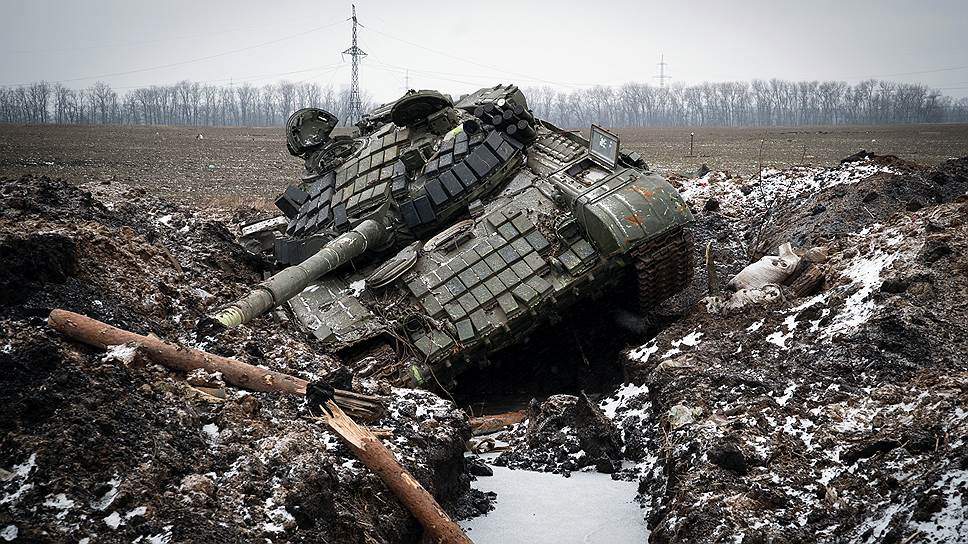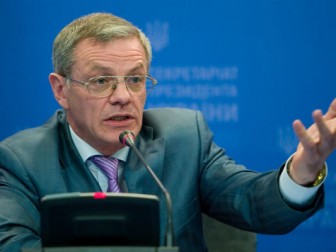The Embassy of the United States in Russia has issued a statement with responses to the claims made by the President of Russia V. Putin during the press conference on the 4th of May, 2014.
Claim: We need to return to the February 21 agreement, which the opposition failed to implement.
Response: As part of the agreement, the Ukrainian Parliament (the Rada) passed a bill to return Ukraine to the 2004 Constitution. Under the terms of the agreement, Yanukovych had 24 hours to sign this legislation, after which the protesters would need to evacuate certain government buildings and take other de-escalatory steps. Instead of signing the legislation, Yanukovych left Kyiv and ultimately Ukraine. Yanukovych is the one who failed to implement the February 21 agreement. Yanukovych’s party has moved on, voting in favor of legislation removing him from office and establishing a new government.
- Ambassador Power: “It was Yanukovych who failed to abide by the terms of that agreement, fleeing Kyiv, and ultimately Ukraine.”
Claim: Ukraine’s government is illegitimate or not representative.
Response: The new government was approved by the Rada with 371 votes, an overwhelming majority of Ukraine’s parliament, with the support of all political parties except the Communists. Even Yanukovych’s Party of Regions (POR) voted in favor of the new government just days after he disappeared. While POR is not represented in the current government, this is a political decision and does not indicate lack of support for the policies of the government. In fact, almost all legislation passed by parliament since Yanukovych’s departure has enjoyed majority support from POR.
Claim: The Rada is under the influence of extremists or terrorists.
Response:
The Rada is the most representative institution in Ukraine, and recent legislation has passed with large majorities, including from representatives of eastern Ukraine.
Claim: The streets of Kyiv are dangerous.
Response: Since the security forces pulled back 10 days ago and the new government has been established, calm has returned to Kyiv. Ukrainian and other media present report that there has been no surge in crime, no looting, and no retribution exacted on political opponents.
Claim: There is a humanitarian crisis and hundreds of thousands are fleeing Ukraine to Russia and seeking asylum.
Response: We have seen absolutely no evidence of this. The best means to prevent such a crisis from happening would be to cease all provocative actions and allow observers into the region to monitor and lower tensions.
- State Border Service of Ukraine: “Migration of Ukrainians remained approximately at the same level that was one week, two, three years ago.” http://www.unian.net/politics/892071-massovogo-vyiezda-ukraintsev-v-rossiyu-net-pogranichniki.html
Claim: Ethnic Russians are under threat.
Response:
There are no confirmed reports of any ethnic Russians being threatened, only allegations in the Russian press and on Russian state television. The new Ukrainian government has placed a priority on peace and reconciliation from the outset. President Turchinov refused to sign the legislation limiting the use of the Russian language at regional level. The US and others, including the EU, have welcomed the Ukrainian government’s inclusive approach.
- Ambassador Power: “There is no evidence that ethnic Russians are in danger. On the contrary, the new Ukrainian government has placed a priority on internal reconciliation and political inclusivity. President Turchinov – the acting President – has made clear his opposition to any restriction on the use of the Russian tongue.”
- Assistant Secretary Nuland: “The OSCE has the tools to address any legitimate concerns with regard to security on the ground, with regard to minority rights, and with regard to preparations for this democratic transition to lead to free and fair elections.”
- Kazakhstani MFA Spokesperson Zhanbolat Usenov: “Kazakhstan calls on all parties to renounce options that imply the use of power and make maximum political efforts to resolve the current crisis by means of negotiations.”
Claim: Russian bases are under threat.
Response: Russian military facilities were and remain secure, and the new Ukrainian government has pledged to abide by all existing international agreements, including those covering Russian bases.
- Ambassador Power: “The central issue is whether the recent change of government in Ukraine constitutes a danger to Russia’s legitimate interests of such a nature and extent that Russia is justified in intervening militarily in Ukraine, seizing control of public facilities, and issuing military ultimatums to elements of the Ukrainian military. The answer, of course, is no.”
Claim: Kyiv is trying to destabilize Crimea.
Response: On the contrary, Russian troops moved out of their bases to seize political objectives and infrastructure in Crimea. Ukraine’s government, in contrast, has acted with restraint and sought dialogue. The government in Kyiv immediately sent the former Chief of Defense to defuse the situation. The latest emissary, Petro Poroshenko, was prevented from entering the Crimean Rada to talk.
Claim: There have been mass attacks on churches in Eastern Ukraine.
Response: We have seen no evidence of this. All of Ukraine’s church leaders, including representatives of the Russian Orthodox Church, have come out in support of the new political establishment, calling for national unity and a period of healing.
- Ambassador Power: “There is no evidence, for example, that churches in Eastern Ukraine are being or will be attacked; the allegation is without basis.”
- Eight Ukrainian churches and religious organizations issued an appeal for peace and against foreign aggression; their letter is on the website of The Institute for Religious Freedom of Ukraine at
http://t.co/CF31axsK8O. In it, they “call the Russian authorities to come to senses and stop its aggression against Ukraine, and immediately pull out Russian troops from the Ukrainian land.” This letter was signed by representatives of the Ukrainian Orthodox Church, Catholic Church, other Christian denominations, the Jewish faith, and the Muslim faith.
Claim: The Crimean “Prime Minister” invited Russian intervention.
Response: International law does not provide for use of force at the invitation of a regional government. Under the Ukrainian Constitution, only the Ukrainian Rada can approve the presence of foreign troops in Ukrainian territory. Sergei Aksyonov’s appeal to President Putin to provide “peace and tranquility” in Crimea was a cynical exercise in destabilization.
Claim: Russia’s actions fall within the scope of the 1997 Friendship Treaty between Ukraine and the Russian Federation.
Response: The 1997 agreement requires Russia to respect Ukraine’s territorial integrity. Russia’s military actions in Ukraine are in clear violation of Ukraine’s territorial integrity and sovereignty.
- Assistant Secretary Nuland: “We consider Russia’s actions in Ukraine to be a … breach of Russia’s Helsinki Commitments and its UN obligations.”
- G7 Leaders statement: Russia’s military actions are “in contravention of Russia’s obligations under the UN Charter and its 1997 basing agreement with Ukraine.”
- Chinese MFA Spokesperson Qin Gang: “We respect the independence, sovereignty and territorial integrity of Ukraine.”
http://moscow.usembassy.gov/settingrecordstraight.html


